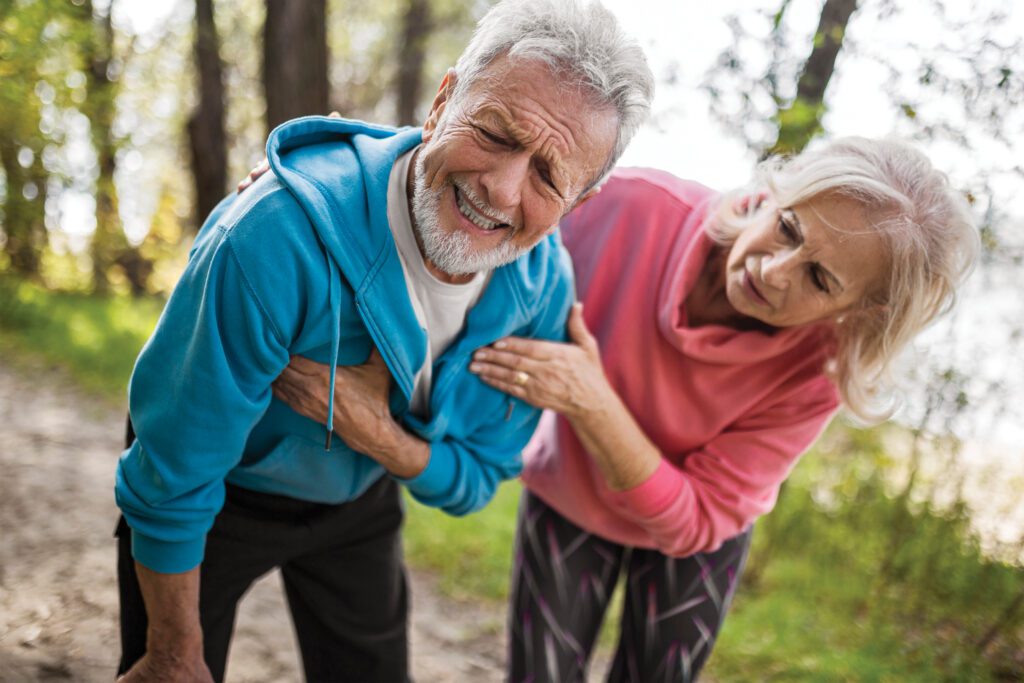Warning Signs of Stroke, Heart Attack, & Cardiac Arrest
Taking action in the early stages of a medical emergency can save someone’s life. The sooner treatment is sought, the less chance of serious damage to the brain and heart.


Stroke Warning Signs:
A stroke is caused by a blocked blood vessel or bleeding in the brain. Immediate treatment of a stroke can lessen the chance of permanent disability or death. According to the National Stroke Association, symptoms of stroke include numbness, confusion, trouble seeing, walking, or speaking and a severe headache. To detect a stroke, the National Stroke Association suggests using the acronym “FAST”:
F stands for “face.” Ask the person to smile. Does one side of the face droop?
A stands for “arms.” Ask the person to raise both arms. Does one arm drift downward?
S stands for “speech.” Ask the person to repeat a simple phrase. Is his or her speech slurred or strange?
T stands for “time.” If you observe any of these signs, call 9-1-1 immediately.
Heart Attack Warning Signs:
Some heart attacks are sudden and intense, but most start slowly with mild discomfort. Often, people affected aren’t sure what’s wrong and wait too long before getting help. Heart attack symptoms generally last 30 minutes or longer and cannot be relieved by rest or oral medications. According to the American Heart Association, symptoms of a heart attack include:
- chest discomfort in the center of the chest that lasts more than a few minutes, or chest pain that goes away and comes back
- discomfort in other areas of the upper body, such as the arms, back, neck, jaw or stomach
- shortness of breath, with or without chest discomfort
- a cold sweat, nausea or lightheadedness
As with men, women’s most common heart attack symptom is chest pain or discomfort, but women are somewhat more likely to experience symptoms such as shortness of breath, nausea/ vomiting, and back or jaw pain.
Cardiac Arrest Warning Signs:
Nearly 300,000 Americans a year go into sudden cardiac arrest, in which a person dies within minutes after an abrupt loss of heart function.
Warning signs include:
• sudden loss of responsiveness
• lack of normal breathing
Don’t wait to call 9-1-1 if you suspect a medical emergency. Emergency medical services staff can begin treatment when they arrive—up to an hour sooner than if someone gets to the hospital by car.

